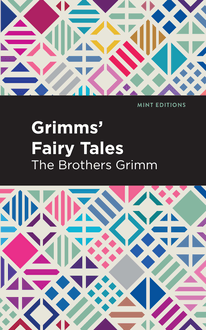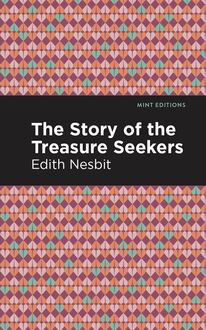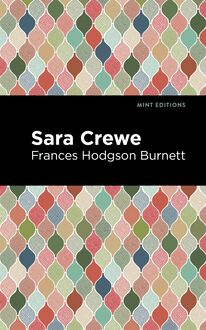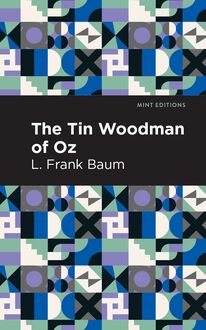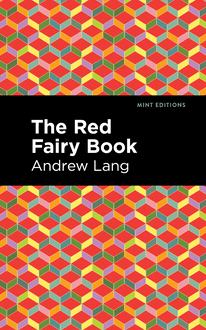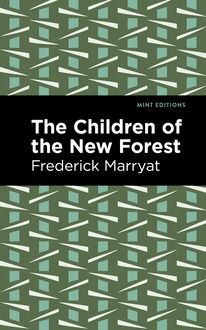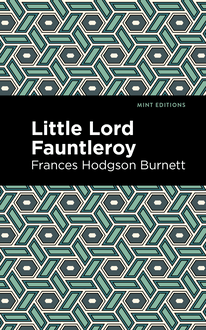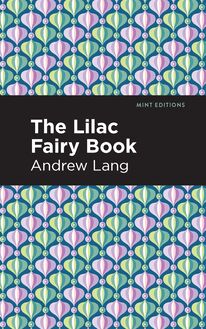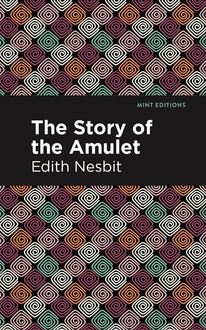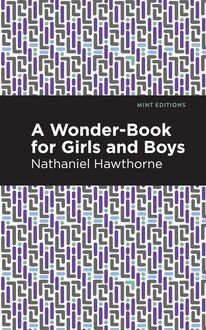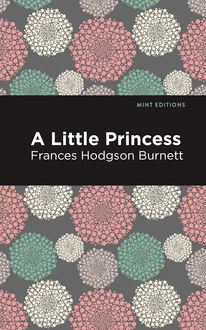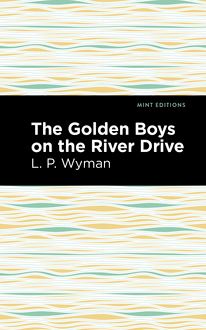-
 Univers
Univers
-
 Ebooks
Ebooks
-
 Livres audio
Livres audio
-
 Presse
Presse
-
 Podcasts
Podcasts
-
 BD
BD
-
 Documents
Documents
-
- Cours
- Révisions
- Ressources pédagogiques
- Sciences de l’éducation
- Manuels scolaires
- Langues
- Travaux de classe
- Annales de BEP
- Etudes supérieures
- Maternelle et primaire
- Fiches de lecture
- Orientation scolaire
- Méthodologie
- Corrigés de devoir
- Annales d’examens et concours
- Annales du bac
- Annales du brevet
- Rapports de stage
La lecture à portée de main
Vous pourrez modifier la taille du texte de cet ouvrage
Découvre YouScribe en t'inscrivant gratuitement
Je m'inscrisDécouvre YouScribe en t'inscrivant gratuitement
Je m'inscrisEn savoir plus
Vous pourrez modifier la taille du texte de cet ouvrage
En savoir plus

Description
Dorothy and the Wizard in Oz (1908) marked a return to form of sorts for its author L. Frank Baum. Unhappy with the previous year’s publication of Ozma of Oz, and eight years removed from the publication of The Wonderful Wizard of Oz, Baum sought to reinvigorate his fledgling fantasy series with a novel true to its roots.
The story begins with an earthquake. Dorothy and her companions are plunged into the world of the Mangaboos, who blame them for the disaster that has wreaked havoc on their lives and destroyed their homes. Moments before they are to be sentenced to death, the Wizard of Oz appears in an air balloon—after years of living in exile from the Emerald City—and saves Dorothy, Eureka, Zeb, and Jim. The Wizard uses sleight-of-hand to convince the Mangaboos of his powers, allowing the group to escape. Together with the wizard, Dorothy and her companions travel through the Valley of Voe, climb Pyramid Mountain, and cross the Land of the Gargoyles, only to find themselves not only farther from home than when they began, but hungry, thirsty, and at the mercy of a vicious dragon. In a last-ditch effort, Dorothy attempts to reach Princess Ozma, in the hopes that the ruler of the Emerald City will save them from certain doom. With a familiar narrative and characters new and old, L. Frank Baum’s Dorothy and the Wizard in Oz is a sequel worthy both of its esteemed predecessor and the reader’s rapt attention.
Filled with rich, detailed layers of fantasy from the mind of L. Frank Baum, Dorothy and the Wizard in Oz is a story about the frail innocence of childhood and the will to persevere that can be found in even the youngest of hearts. Long overshadowed by the film, Baum’s series is required reading for children, adults with children, and adults who refuse to let life lose its flavor of fantasy.
With a beautifully designed cover and professionally typeset manuscript, this edition of L. Frank Baum’s Dorothy and the Wizard in Oz is a classic of children’s literature reimagined for modern readers.
Sujets
Informations
| Publié par | Mint Editions |
| Date de parution | 01 décembre 2020 |
| Nombre de lectures | 1 |
| EAN13 | 9781513272559 |
| Langue | English |
Informations légales : prix de location à la page 0,0400€. Cette information est donnée uniquement à titre indicatif conformément à la législation en vigueur.
Extrait
Dorothy and the Wizard in Oz
L. Frank Baum
Dorothy and the Wizard in Oz was first published in 1908.
This edition published by Mint Editions 2020.
ISBN 9781513267555 | E-ISBN 9781513272559
Published by Mint Editions®
minteditionbooks .com
Publishing Director: Jennifer Newens
Design & Production: Rachel Lopez Metzger
Typesetting: Westchester Publishing Services
C ONTENTS 1. T HE E ARTHQUAKE 2. T HE G LASS C ITY 3. T HE A RRIVAL OF THE W IZARD 4. T HE V EGETABLE K INGDOM 5. D OROTHY P ICKS THE P RINCESS 6. T HE M ANGABOOS P ROVE D ANGEROUS 7. I NTO THE B LACK P IT AND O UT A GAIN 8. T HE V ALLEY OF V OICES 9. T HEY F IGHT THE I NVISIBLE B EARS 10. T HE B RAIDED M AN OF P YRAMID M OUNTAIN 11. T HEY M EET THE W OODEN G ARGOYLES 12. A W ONDERFUL E SCAPE 13. T HE D EN OF THE D RAGONETTES 14. O ZMA U SES THE M AGIC B ELT 15. O LD F RIENDS ARE R EUNITED 16. J IM , THE C AB -H ORSE 17. T HE N INE T INY P IGLETS 18. T HE T RIAL OF E UREKA , THE K ITTEN 19. T HE W IZARD P ERFORMS A NOTHER T RICK 20. Z EB R ETURNS TO THE R ANCH
Chapter 1
T HE E ARTHQUAKE
T he train from ’Frisco was very late. It should have arrived at Hugson’s Siding at midnight, but it was already five o’clock and the gray dawn was breaking in the east when the little train slowly rumbled up to the open shed that served for the station-house. As it came to a stop the conductor called out in a loud voice:
“Hugson’s Siding!”
At once a little girl rose from her seat and walked to the door of the car, carrying a wicker suit-case in one hand and a round bird-cage covered up with newspapers in the other, while a parasol was tucked under her arm. The conductor helped her off the car and then the engineer started his train again, so that it puffed and groaned and moved slowly away up the track. The reason he was so late was because all through the night there were times when the solid earth shook and trembled under him, and the engineer was afraid that at any moment the rails might spread apart and an accident happen to his passengers. So he moved the cars slowly and with caution.
The little girl stood still to watch until the train had disappeared around a curve; then she turned to see where she was.
The shed at Hugson’s Siding was bare save for an old wooden bench, and did not look very inviting. As she peered through the soft gray light not a house of any sort was visible near the station, nor was any person in sight; but after a while the child discovered a horse and buggy standing near a group of trees a short distance away. She walked toward it and found the horse tied to a tree and standing motionless, with its head hanging down almost to the ground. It was a big horse, tall and bony, with long legs and large knees and feet. She could count his ribs easily where they showed through the skin of his body, and his head was long and seemed altogether too big for him, as if it did not fit. His tail was short and scraggly, and his harness had been broken in many places and fastened together again with cords and bits of wire. The buggy seemed almost new, for it had a shiny top and side curtains. Getting around in front, so that she could look inside, the girl saw a boy curled up on the seat, fast asleep.
She set down the bird-cage and poked the boy with her parasol. Presently he woke up, rose to a sitting position and rubbed his eyes briskly.
“Hello!” he said, seeing her, “are you Dorothy Gale?”
“Yes,” she answered, looking gravely at his tousled hair and blinking gray eyes. “Have you come to take me to Hugson’s Ranch?”
“Of course,” he answered. “Train in?”
“I couldn’t be here if it wasn’t,” she said.
He laughed at that, and his laugh was merry and frank. Jumping out of the buggy he put Dorothy’s suit-case under the seat and her bird-cage on the floor in front.
“Canary-birds?” he asked.
“Oh no; it’s just Eureka, my kitten. I thought that was the best way to carry her.”
The boy nodded.
“Eureka’s a funny name for a cat,” he remarked.
“I named my kitten that because I found it,” she explained. “Uncle Henry says ‘Eureka’ means ‘I have found it.’ ”
“All right; hop in.”
She climbed into the buggy and he followed her. Then the boy picked up the reins, shook them, and said “Gid-dap!”
The horse did not stir. Dorothy thought he just wiggled one of his drooping ears, but that was all.
“Gid-dap!” called the boy, again.
The horse stood still.
“Perhaps,” said Dorothy, “if you untied him, he would go.”
The boy laughed cheerfully and jumped out.
“Guess I’m half asleep yet,” he said, untying the horse. “But Jim knows his business all right—don’t you, Jim?” patting the long nose of the animal.
Then he got into the buggy again and took the reins, and the horse at once backed away from the tree, turned slowly around, and began to trot down the sandy road which was just visible in the dim light.
“Thought that train would never come,” observed the boy. “I’ve waited at that station for five hours.”
“We had a lot of earthquakes,” said Dorothy. “Didn’t you feel the ground shake?”
“Yes; but we’re used to such things in California,” he replied. “They don’t scare us much.”
“The conductor said it was the worst quake he ever knew.”
“Did he? Then it must have happened while I was asleep,” he said thoughtfully.
“How is Uncle Henry?” she enquired, after a pause during which the horse continued to trot with long, regular strides.
“He’s pretty well. He and Uncle Hugson have been having a fine visit.”
“Is Mr. Hugson your uncle?” she asked.
“Yes. Uncle Bill Hugson married your Uncle Henry’s wife’s sister; so we must be second cousins,” said the boy, in an amused tone. “I work for Uncle Bill on his ranch, and he pays me six dollars a month and my board.”
“Isn’t that a great deal?” she asked, doubtfully.
“Why, it’s a great deal for Uncle Hugson, but not for me. I’m a splendid worker. I work as well as I sleep,” he added, with a laugh.
“What is your name?” said Dorothy, thinking she liked the boy’s manner and the cheery tone of his voice.
“Not a very pretty one,” he answered, as if a little ashamed. “My whole name is Zebediah; but folks just call me ‘Zeb.’ You’ve been to Australia, haven’t you?”
“Yes; with Uncle Henry,” she answered. “We got to San Francisco a week ago, and Uncle Henry went right on to Hugson’s Ranch for a visit while I stayed a few days in the city with some friends we had met.”
“How long will you be with us?” he asked.
“Only a day. Tomorrow Uncle Henry and I must start back for Kansas. We’ve been away for a long time, you know, and so we’re anxious to get home again.”
The boy flicked the big, boney horse with his whip and looked thoughtful. Then he started to say something to his little companion, but before he could speak the buggy began to sway dangerously from side to side and the earth seemed to rise up before them. Next minute there was a roar and a sharp crash, and at her side Dorothy saw the ground open in a wide crack and then come together again.
“Goodness!” she cried, grasping the iron rail of the seat. “What was that?”
“That was an awful big quake,” replied Zeb, with a white face. “It almost got us that time, Dorothy.”
The horse had stopped short, and stood firm as a rock. Zeb shook the reins and urged him to go, but Jim was stubborn. Then the boy cracked his whip and touched the animal’s flanks with it, and after a low moan of protest Jim stepped slowly along the road.
Neither the boy nor the girl spoke again for some minutes. There was a breath of danger in the very air, and every few moments the earth would shake violently. Jim’s ears were standing erect upon his head and every muscle of his big body was tense as he trotted toward home. He was not going very fast, but on his flanks specks of foam began to appear and at times he would tremble like a leaf.
The sky had grown darker again and the wind made queer sobbing sounds as it swept over the valley.
Suddenly there was a rending, tearing sound, and the earth split into another great crack just beneath the spot where the horse was standing. With a wild neigh of terror the animal fell bodily into the pit, drawing the buggy and its occupants after him.
Dorothy grabbed fast hold of the buggy top and the boy did the same. The sudden rush into space confused them so that they could not think.
Blackness engulfed them on every side, and in breathless silence they waited for the fall to end and crush them against jagged rocks or for the earth to close in on them again and bury them forever in its dreadful depths.
The horrible sensation of falling, the darkness and the terrifying noises, proved more than Dorothy could endure and for a few moments the little girl lost consciousness. Zeb, being a boy, did not faint, but he was badly frightened, and clung to the buggy seat with a tight grip, expecting every moment would be his last.
Chapter 2
T HE G LASS C ITY
W hen Dorothy recovered her senses they were still falling, but not so fast. The top of the buggy caught the air like a parachute or an umbrella filled with wind, and held them back so that they floated downward with a gentle motion that was not so very disagreeable to bear. The worst thing was their terror of reaching the bottom of this great crack in the earth, and the natural fear that sudden death was about to overtake them at any moment. Crash after crash echoed far above their heads, as the earth came together where it had split, and stones and chunks of clay rattled around them on every side. These they could not see, but they could feel them pelting the buggy top, and Jim screamed almost like a human being when a stone overtook him and struck his boney body. They did not really hurt the poor horse, because everything was falling together; only the stones and rubbish fell faster than the horse and buggy, which were held back by the pressure of the air, so that the terrified animal was actually more frightened than he was injured.
How long this sta
-
 Univers
Univers
-
 Ebooks
Ebooks
-
 Livres audio
Livres audio
-
 Presse
Presse
-
 Podcasts
Podcasts
-
 BD
BD
-
 Documents
Documents
-
Jeunesse
-
Littérature
-
Ressources professionnelles
-
Santé et bien-être
-
Savoirs
-
Education
-
Loisirs et hobbies
-
Art, musique et cinéma
-
Actualité et débat de société
-
Jeunesse
-
Littérature
-
Ressources professionnelles
-
Santé et bien-être
-
Savoirs
-
Education
-
Loisirs et hobbies
-
Art, musique et cinéma
-
Actualité et débat de société
-
Actualités
-
Lifestyle
-
Presse jeunesse
-
Presse professionnelle
-
Pratique
-
Presse sportive
-
Presse internationale
-
Culture & Médias
-
Action et Aventures
-
Science-fiction et Fantasy
-
Société
-
Jeunesse
-
Littérature
-
Ressources professionnelles
-
Santé et bien-être
-
Savoirs
-
Education
-
Loisirs et hobbies
-
Art, musique et cinéma
-
Actualité et débat de société
- Cours
- Révisions
- Ressources pédagogiques
- Sciences de l’éducation
- Manuels scolaires
- Langues
- Travaux de classe
- Annales de BEP
- Etudes supérieures
- Maternelle et primaire
- Fiches de lecture
- Orientation scolaire
- Méthodologie
- Corrigés de devoir
- Annales d’examens et concours
- Annales du bac
- Annales du brevet
- Rapports de stage
